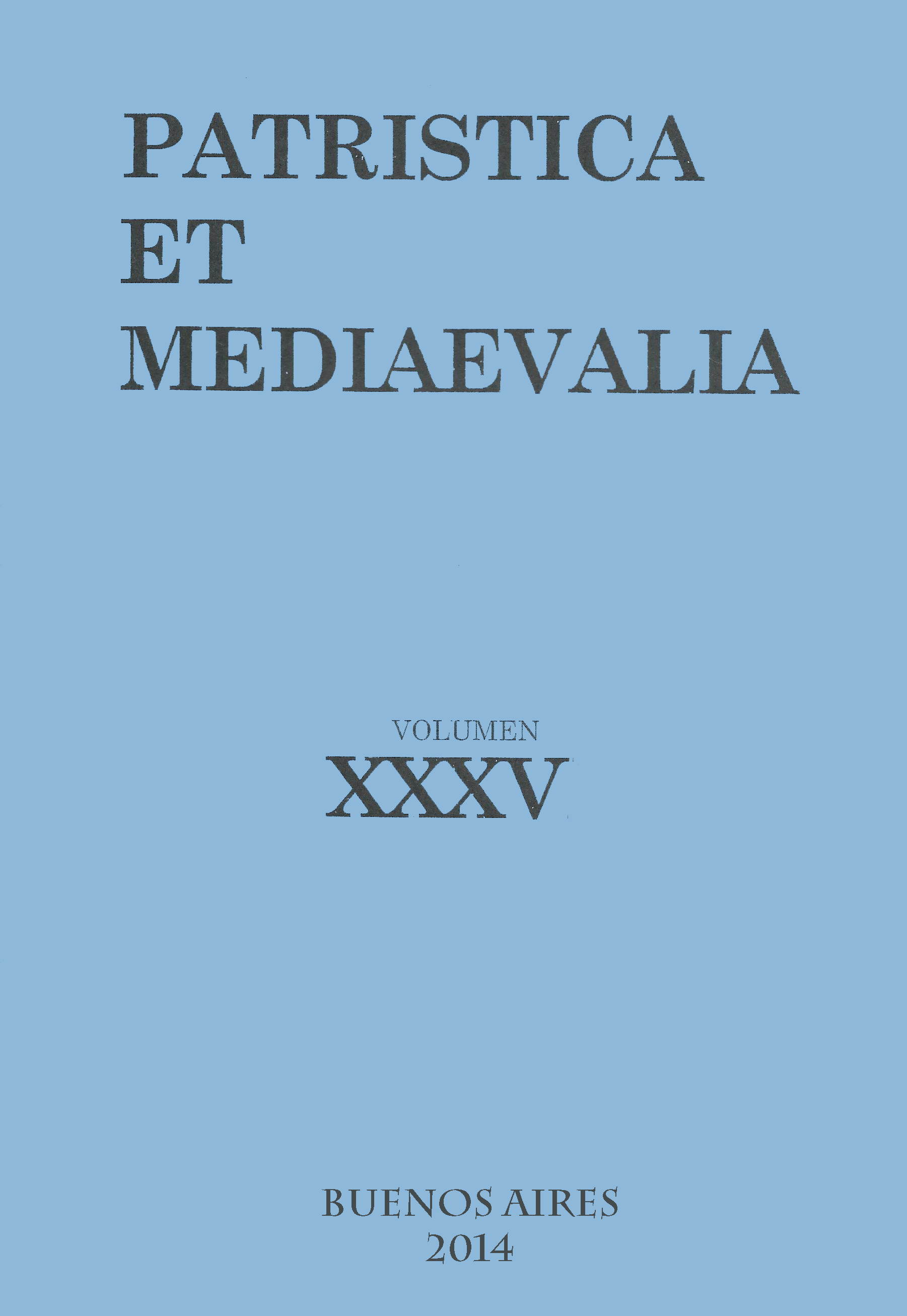Finalism and Rationality of Nature in the first Summae of the 13th Century
The Tradition of the ius naturale in William of Auxerre and Philippe the Chancellor
Abstract
This paper examines the “finalism of nature” in connection with the “rationality of the world”. It is focused on the structure and development of the two earliest Summae of the 13th century (that of William of Auxerre and that of Phillip the Chancellor), works in which the links between natura and ratio are explicit. The article also analyses the function of nature as a bond between unity and plurality and the role of the ius naturale within an embracing conception of nature.Downloads
References
Aertsen, J. (1996). The Medieval Philosophy and the Trascendentals. The case of Thomas Aquinas. Leiden/New York/Köln: Brill.
Corso de Estrada, L. (2005). Teoría de la realidad y antropología ciceronianas en la concepción de la virtud de Alanus de Insulis. En Soto-Bruna, M. (ed). Metafísica y antropología en el siglo XII. Pamplona: EUNSA, 335-348.
Corso de Estrada, L. (2006). La tradición ciceroniana en Rabano Mauro. Razón divina y razón del cosmos. En Cruz, J. & Soto-Bruna, M. (eds). Metafísica y dialéctica en los períodos carolingio y franco (ss. IX-XI). Pamplona: EUNSA, 35-51.
Corso de Estrada, L. (2008). Naturaleza y vida moral. Marco Tulio Cicerón y Tomás de Aquino. Pamplona: EUNSA.
Corso de Estrada, L. (2011). Unidad y jerarquía cosmológica en la ‘Summa’ de Felipe el Canciller. Anuario Filosófico, 44(1), 75-94.
Corso de Estrada, L. (2012). Oikeíosis. Ciceronian Reading and XIII Century Receptions. En Vigo, A. (ed). Oikeíosis and the Natural Basis of Morality. From Classical Stoicism to Modern Philosophy. Hildesheim: G. Olms, 67-94.
Crowe, M. (1977). The changing profile of the natural law. The Hague: M. Nijhoff.
Erneut, A. & Meillet, A. (1959). Dictionnaire étymologique de la Langue Latine. Paris: Librairie C. Klincksieck.
Glorieux, P. (1933-1934). Repertoire des maîtres en théologie de Paris au XIIIe. siècle. Paris: Vrin.
Gregory, T. (1958). Platonismo Medievale. Studi e Ricerche. Roma: Istituto Storico Italiano per il Medio Evo.
Gregory, T. (1979). L’idea di natura nella filosofía medievale prima dell’ingresso della física di Aristotele. En Interpretazione del Medioevo (a cura di M.A. Del Torre). Bologna: Società il Mulino.
Landgraf, A. (1948). Einführung in die Geschichte der theologischen Literatur der Frühscholastik. Regensburg: Verlag Friedrich Pustet.
Lottin, O. (1931). Le droit natural chez Saint Thomas d’Aquin et ses prédécesseurs. Bruges: C. Beyaerts.
Lottin, O. (1948). Psychologie et morale aux XII et XIII siècles. Lovain/Gembloux: Abbaye du Mont César/J. Duculot.
Moreau, J. (1939). L’ame du monde. De Platon aux Stoïciens. Paris: Les Belles Lettres.
Poullion, H. (1935). Le traité des Propietés Trascendentales de l’être jusqu’a Saint Thomas D’Aquin. Louvain: Institut Supérieur de Philosophie de L’Université Catholique de Louvain.
Pouillon, H. (1939). Le premier Traité des Propietés Trascendentales. La ‘Summa de bono’ du Chancelier Philippe. Revue né-scolastique de philosophie, 42, 40-77.
Pembroke, S. (1996). Oikeíosis. En Long, A. A. (ed). Problems in Stoicism. London: The Athlone Press.
Pepin, J. (1964). Théologie Cosmique et Théologie Chrétienne (Ambroise, Exam. I 1, 1-4). Paris: Presses Universitaires de France.
Ribaillier, J. (1985). Introduction. Summa aurea Magistri Guillelmi Altissiodorensis. Centre National de Recherches Scientifique-Collegi S. Bonaventurae ad Claras Aguas. Vol. I. Paris/Roma.
1. The authors who publish in this magazine accept the following conditions:
-
They retain the copyright and grant to the magazine the right of the first publication, with the work registered under the Attribution-ShareAlike 4.0 International License that allows third parties to use what is published as long as they mention the authorship of the work and the first publication in this magazine.
-
They can make other independent and additional contractual agreements for the non-exclusive distribution of the version of the article published in this magazine (eg. include it in an institutional repository or publish it in a book) provided that they clearly indicate that the work was first published in this journal.
-
They are allowed and recommended to publish their work on the Internet (for example on institutional or personal pages).
2. AutoArchive Conditions. Authors are allowed and encouraged to distribute post-print electronic versions of their manuscripts because it promotes their circulation, a possible increase of quotation and a major reach among the Academic community. Color RoMEO: blue.













